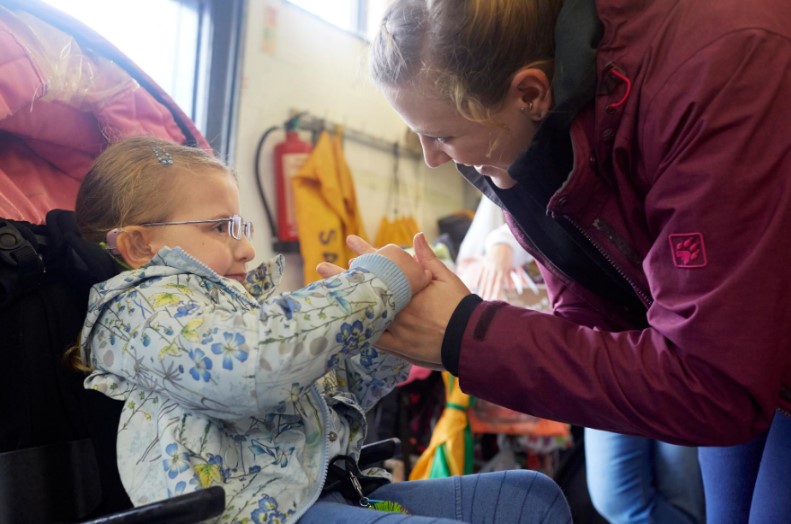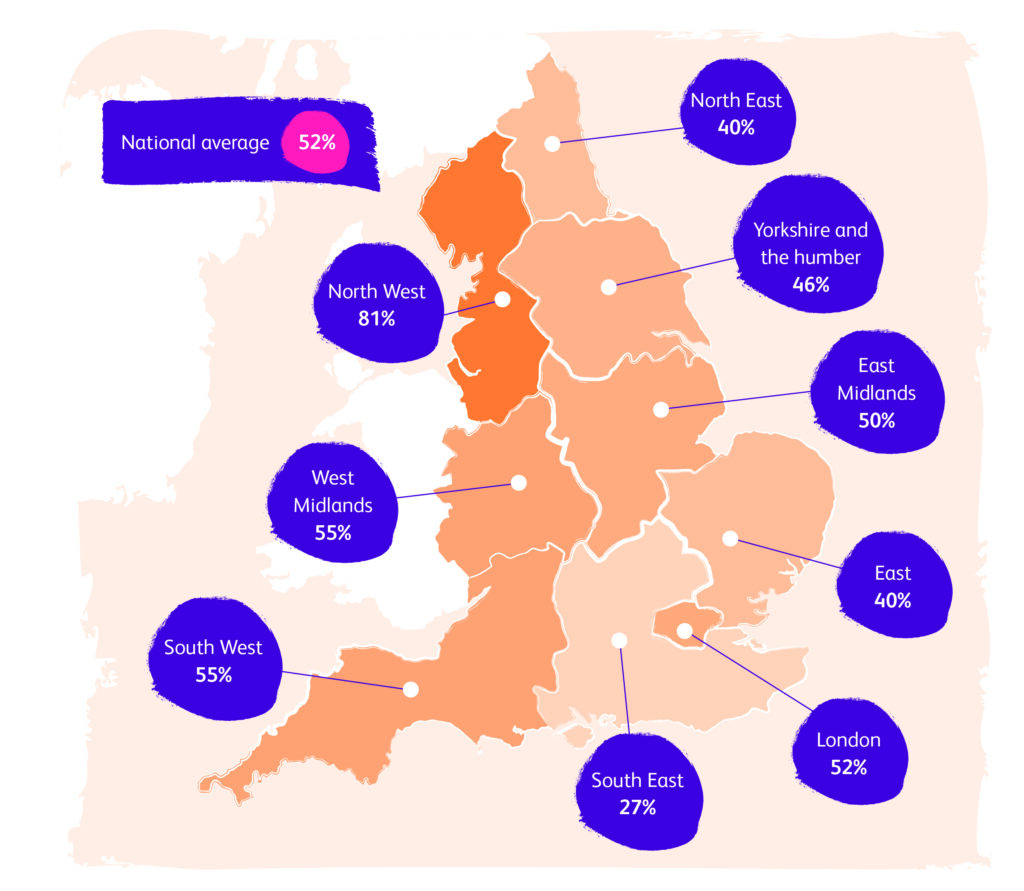MSI teachers shortage in England
There are currently 3,829 children with multi-sensory impairment, or deafblindness, in England.
Children who have both sight and hearing loss need specialist support to learn and develop.
Currently, there are not enough specialist MSI teachers employed by local authorities across the country to meet the needs of these children.
What is an MSI teacher?
Could your child benefit from MSI support?
Sense offers extra support to young people who are multi-sensory impaired.
MSI (multi-sensory impairment) teachers are specially trained to support children who are deafblind to learn and develop skills.
They work with children at school, and they work with other professionals to support the child’s health and educational needs, too.
One full time MSI teacher can give vital support to as many as 20 disabled children.
A day in the life of an MSI teacher

“It’s not easy to describe a day in the life as a multi-sensory impairment teacher as every day is different.
“My role can include everything from running groups for pre-schoolers, attending family days in the community, offering support in a school, or working alongside families and professionals that want guidance.
“My role is to recognise a child’s potential, the barriers they experience to learning, and figure out how we help them to fulfil their goals.”
Sense’s investigation into the number of MSI teachers in England
To find out more about the number of MSI teachers in England, we made a freedom of information request to local authorities in July 2021.
We asked for information on:
- The support available for children with multi-sensory impairment in the area.
- The number of MSI teachers or practitioners currently employed.
- The weekly hours and salaries of these roles.
We received 127 responses from local authorities.
What we found: There is a huge shortage of MSI teachers
Evidence gathered by Sense shows that over half (52%) of local authorities in England do not employ any MSI teachers.
Some of these local authorities have teachers that specialise in sight impairments, or in hearing impairments. But this is not the same as specialist MSI support. There are unique challenges facing children who are deafblind.
There is a large variation in the support available across the country. This means that getting enough support for your child with MSI is a postcode lottery.
In each region of England, this is the percentage of local authorities that do not employ any MSI teachers:


“Without the right support, Euan gets frustrated at school, and this sometimes leads to him acting out. It’s not that he’s a naughty child, but without having support from professionals that understand his needs, he can’t keep up with lessons or games in the classroom.”
Fiona, Euan’s mum
Our recommendations

The government should create a £34.3 million MSI Education Fund of ring-fenced funding. This could change the lives of thousands of children with MSI in England.
This would include:
- £4.8 million to train and employ 21 MSI teachers in local authorities where thereis an urgent need.
- £13.3 million to fill the remaining gaps in provision, by training and employing 58 MSI teachers in local authorities where there is no current provision, but a less urgent need.
- £16.2 million to keep 73 MSI teachers in post across England.
Find out more about our research
If you have questions about our research, or would like to know more about our policy work in education, get in touch with our policy research team: [email protected]

